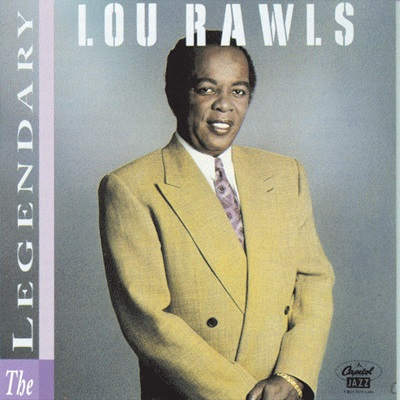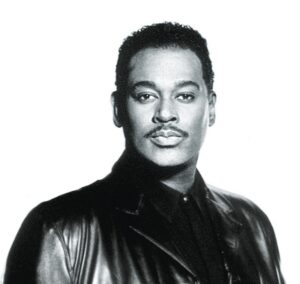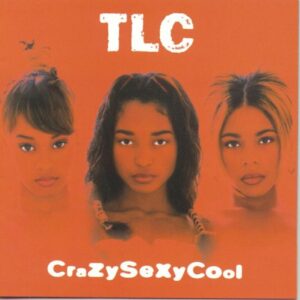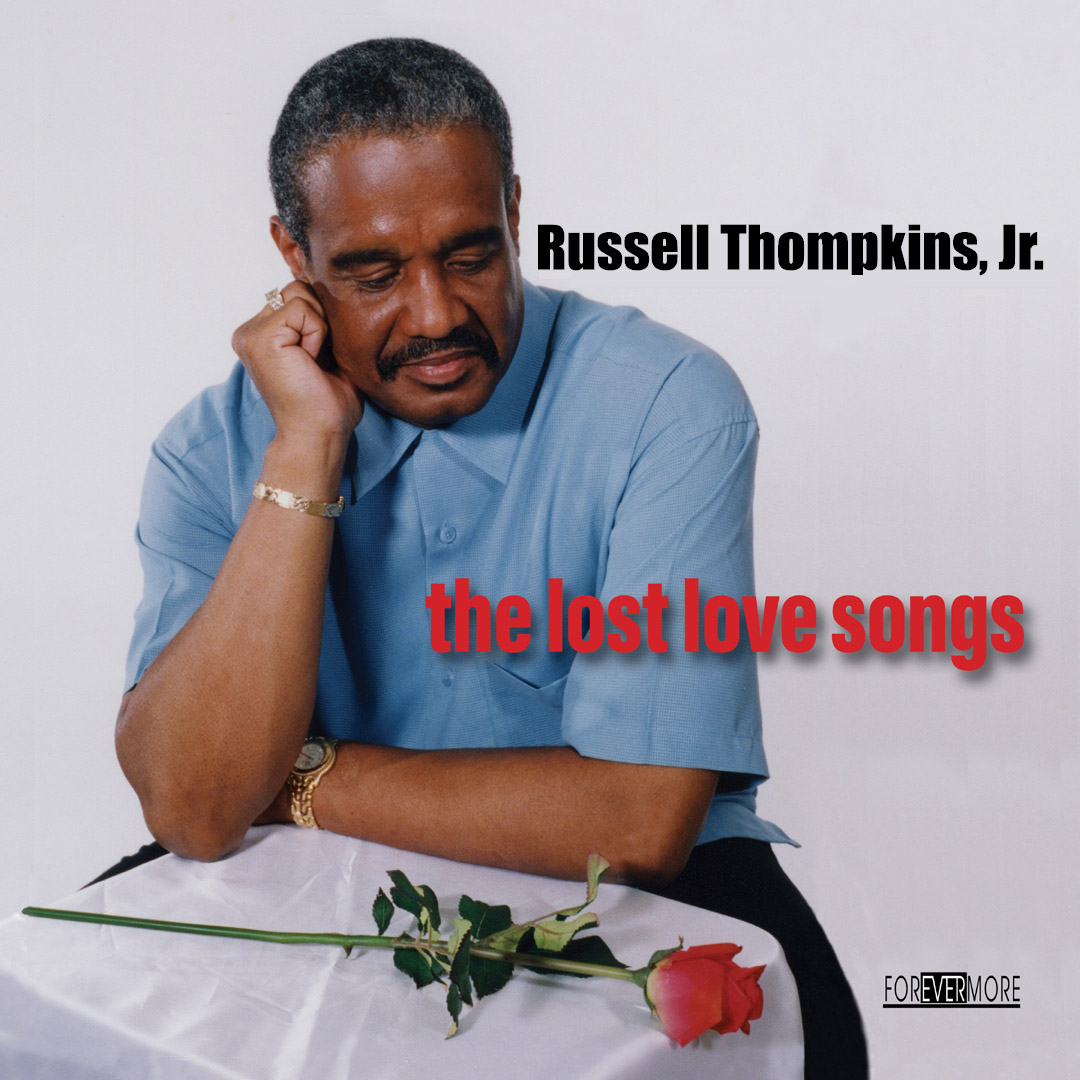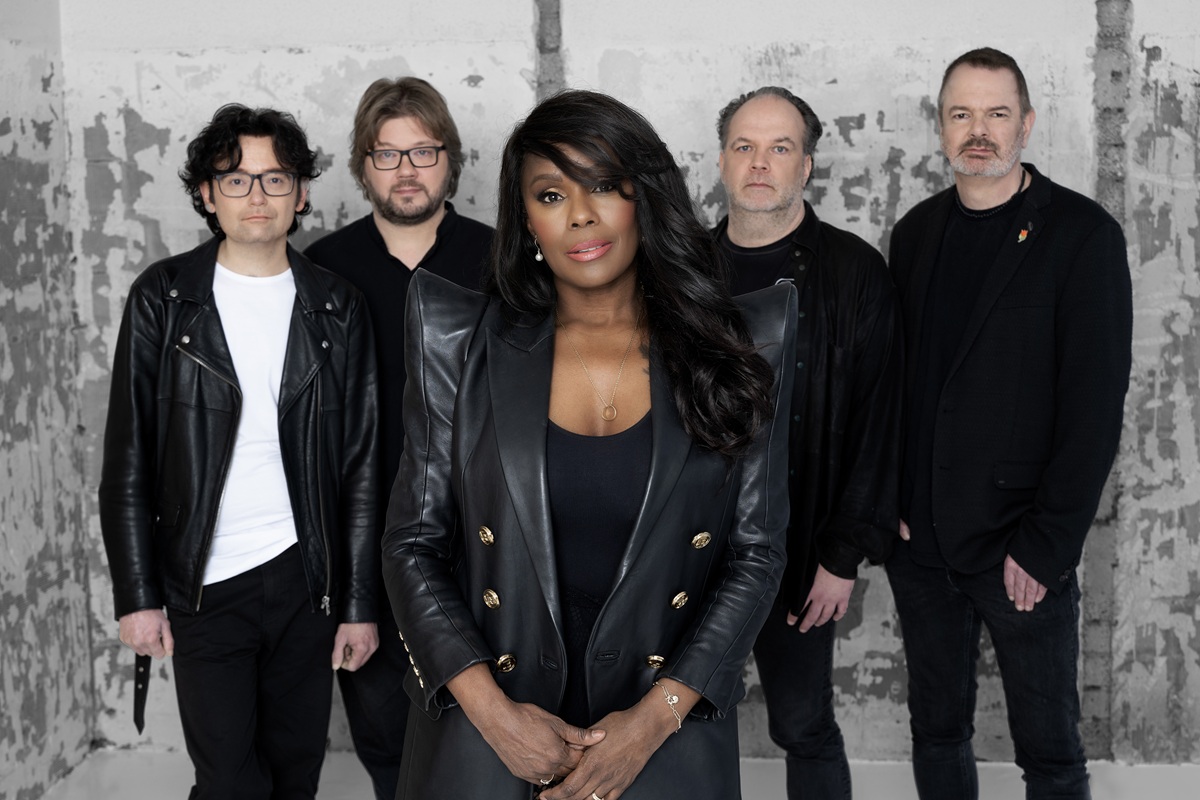Unfortunately maligned at times by both Jazz and Soul purists, Lou Rawls enjoyed a 40-plus year career that would be the envy of the vast majority of artists in either genre. His longevity and his accomplishments – both musically and socially – were among the most impressive in the Soul Music world.
Born on the rough South side of Chicago in the mid 1930s, Rawls cut his musical teeth on Gospel music. But the ’50s secular stylings of the rising doo-wop movement as well as jazz artists such as Billy Eckstine and Joe Williams appealed to him, and as a teen he joined classmate Sam Cooke in the group Teenage Kings of Harmony. After a stint in the Army, he moved back to Gospel, working as part of the Pilgrim Travelers in Los Angeles. He was sidelined for several months in the late 50s by a tragic auto accident that almost killed him, and after recovering he left the Travelers and became a solo secular artist on the L.A. jazz nightclub scene. He ultimately came to the attention of Capitol Records and was signed in 1960.
Rawls’ Capitol debut, Stormy Monday, performed with pianist Les McCann, was a rather slick, uptempo mixture of jazz, blues and soul that resonated with young, urban African American audiences. His interpretations of the title cut, “God Bless the Child” and “Willow Weep For Me” were memorable, sounding like those of a seasoned song stylist rather than a recording newcomer. Rawls continued to develop a substantial following over the next few years with a mixture of new songs and covers of jazz and pop standards. He then scored big in 1966 with his excellent Live album. In addition to including his most popular cut to date (“Tobacco Road”), the disc also captured the storytelling and amusing stage banter that would become a Rawls trademark. His seven-minute working of “World of Trouble” (including three minutes of rapping) was marvelous, clearly demonstrating his strong rapport with the live audience. The album’s highlight, however, was his midtempo reading of the oft-covered “St. James Infirmary,” which stands to this day as the definitive version of that great song.
As the 60s wore on, Rawls continued to grow in popularity, and he began to reach a broader crossover audience with hits such as “Love Is A Hurtin’ Thing,” “Dead End Street” and “Your Good Thing (Is About To End).” However, the quality and soulfulness of his recordings diminished significantly in this period, as jazz instrumentation gave way to MOR string sections and Vegas-style pop arrangements. Things got even worse in the early 70s, as he signed with MGM Records for a couple of dreadful pop albums that further took him away from his Jazz and Soul foundation.
By 1975 Lou Rawls was no longer a “hip” singer and his forays over the previous half decade had effectively removed his jazz credentials. He smartly signed with Gamble & Huff’s Philadelphia International Records and recorded a series of top notch urban adult contemporary discs that meshed his deep, smooth voice with PIR’s typically strong songwriting and classy arrangements. He scored immediately with what would become his signature song, the light disco “You’ll Never Find Another Love,” and continued over the next half decade with adult hits such as “Lady Love,” “See You When I Git There” and “Groovy People.”
By the end of the 70s, Rawls had accumulated a catalog of songs and a strong stage presence that made him an in-demand performer internationally. He was also beloved in the African American community for his unceasing support of higher education, most notably through his annual telethon for the United Negro College Fund, which raised millions for traditional black colleges around the US.
When the hits stopped coming at PIR in the early 80s, Rawls signed with Epic Records for a series of enjoyable, if not spectacular, albums. This period was most notable for his recording of “Wind Beneath My Wings,” still the best version of that song (it was subsequently remade dozens of times, including the dreadful smash cover by Bette Midler). Later in the decade, he moved to Blue Note, where he recorded some very nice albums aimed at jazz audiences, generally working with producer Billy Vera. His recordings “You Can’t Go Home No More,” “Don’t Let Me Be Misunderstood” and duets with Dianne Reaves on “At Last” and “Fine Brown Frame” highlighted a productive renaissance period for him.
After 1993’s Portrait of the Blues, Rawls ended his tenure with Blue Note and stopped actively recording for several years. He returned in 1998 with the quickly forgotten theme album, Seasons For U (which he independently released). Then in 2003, at age 70, he surprised the music world by releasing the tribute disc, Rawls Sings Sinatra, which hit the top 5 on the Jazz charts.
Sadly, Mr. Rawls died of cancer on January 6, 2006. Much of his best work has since been reissued on CD (of particular note is his early 60s Live album) and his biggest songs remain popular well into the second decade of the 21st century.
By Chris Rizik
